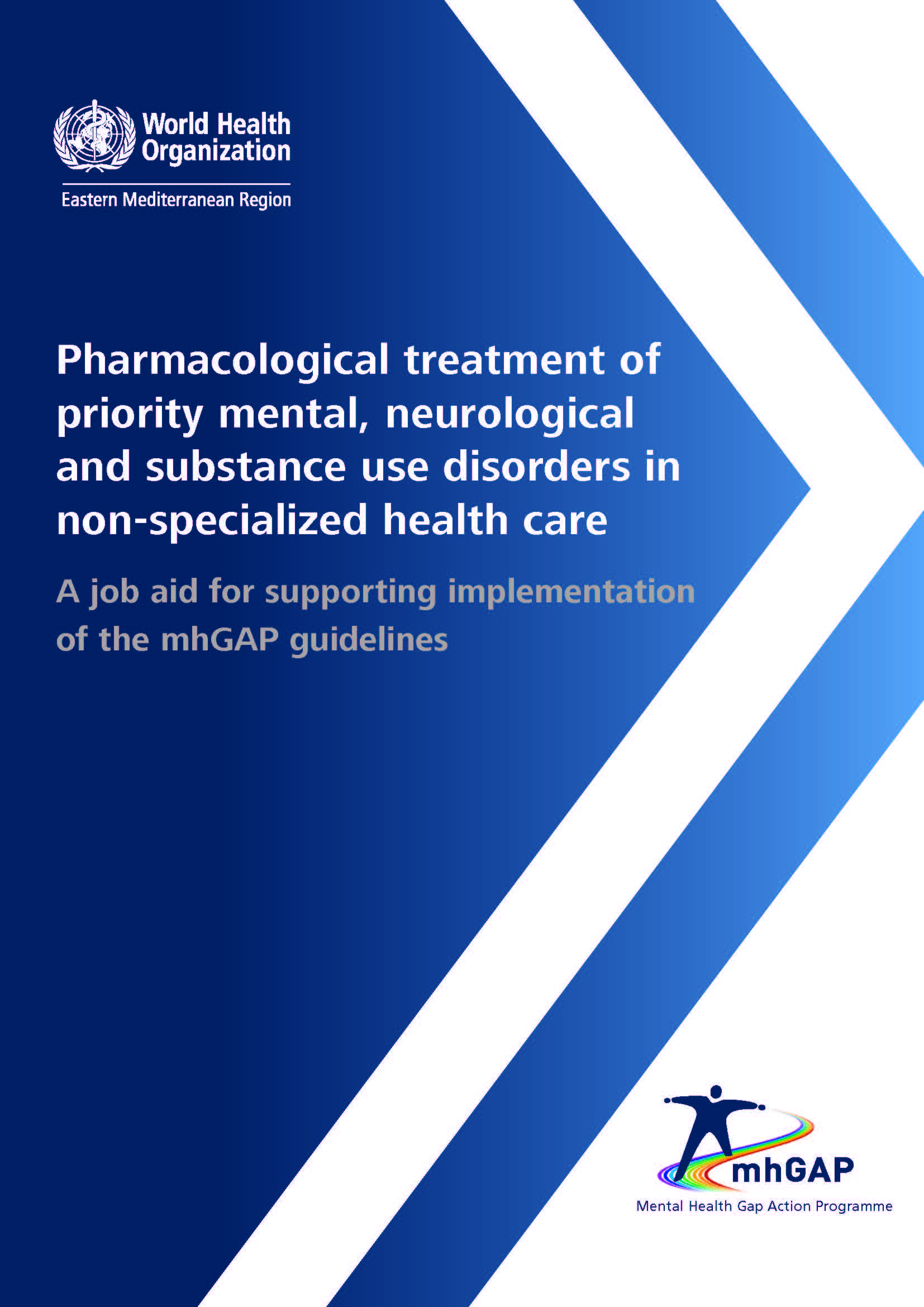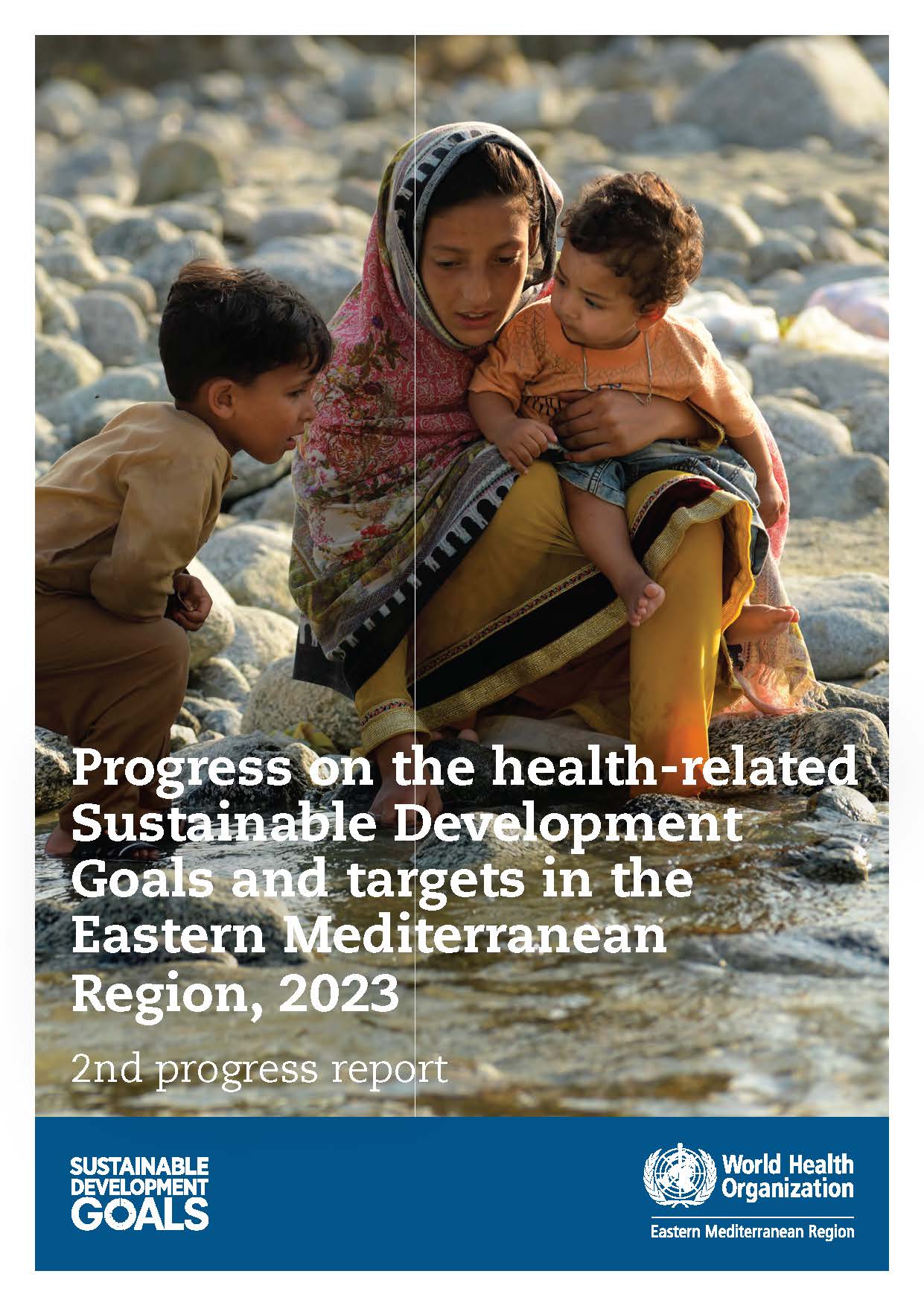Pharmacological treatment of priority mental, neurological and substance use disorders in non-specialized health care: a job aid for supporting implementation of the mhGAP guidelines
Pharmacological treatment of priority mental, neurological and substance use disorders in non-specialized health care: a job aid for supporting implementation of the mhGAP guidelines
 Mental, neurological and substance use (MNS) disorders are common in all regions of the world, affecting every community and age group across all countries, regardless of income. Some 10% of the global burden of disease is attributed to these disorders, but the World Health Organization (WHO) estimates that only 29% of people with psychosis and 40% of people with depression receive mental health services. The gaps in treatment vary across countries and from one mental health condition to another. For example, while 70% of people with psychosis are reported to be treated in high-income countries, only 12% receive mental health care in low-income countries. For depression, the gaps in service coverage are wide across all countries: even in high-income countries, nearly half of people with moderate to severe depression do not receive formal mental health care.
Mental, neurological and substance use (MNS) disorders are common in all regions of the world, affecting every community and age group across all countries, regardless of income. Some 10% of the global burden of disease is attributed to these disorders, but the World Health Organization (WHO) estimates that only 29% of people with psychosis and 40% of people with depression receive mental health services. The gaps in treatment vary across countries and from one mental health condition to another. For example, while 70% of people with psychosis are reported to be treated in high-income countries, only 12% receive mental health care in low-income countries. For depression, the gaps in service coverage are wide across all countries: even in high-income countries, nearly half of people with moderate to severe depression do not receive formal mental health care.
Progress on the health-related Sustainable Development Goals and targets in the Eastern Mediterranean Region, 2023: 2nd progress report
Progress on the health-related Sustainable Development Goals and targets in the Eastern Mediterranean Region, 2023: 2nd progress report
 The 2030 Agenda for Sustainable Development includes a vision of healthy lives and well-being for all at all ages. This major report provides an update on progress towards the health-related Sustainable Development Goals (SDGs) in the WHO Eastern Mediterranean Region. It presents regional trends between 2010 and 2022 for 50 health-related SDG indicators using available data from WHO and estimates from other United Nations agencies. The report reveals some successes at the country level amid a marked slowdown regionally with setbacks across indicators on health health risks and determinants and access to services. We are at the halfway point for the 2030 Agenda for Sustainable Development: to reverse current trends and ensure the health and well-being of our population we must take bold steps now.
The 2030 Agenda for Sustainable Development includes a vision of healthy lives and well-being for all at all ages. This major report provides an update on progress towards the health-related Sustainable Development Goals (SDGs) in the WHO Eastern Mediterranean Region. It presents regional trends between 2010 and 2022 for 50 health-related SDG indicators using available data from WHO and estimates from other United Nations agencies. The report reveals some successes at the country level amid a marked slowdown regionally with setbacks across indicators on health health risks and determinants and access to services. We are at the halfway point for the 2030 Agenda for Sustainable Development: to reverse current trends and ensure the health and well-being of our population we must take bold steps now.
أطلس تعاطي مواد الإدمان 2021
 أطلس تعاطي مواد الإدمان 2021
أطلس تعاطي مواد الإدمان 2021
يقدم أطلس تعاطي مواد الإدمان لعام 2021 تقريرًا عن التقدم المُحرز في تنفيذ إطار العمل الإقليمي لتعزيز استجابة الصحة العامة لتعاطي مواد الإدمان، الذي اعتُمد في عام 2019 في الدورة السادسة والستين للجنة الإقليمية لشرق المتوسط. وعقب اعتماد الإطار الإقليمي، كَلَّفت اللجنةُ الإقليمية المنظمةَ برصد تنفيذ الإطار ورفع تقرير كل سنتين عنه. ويحدد الأطلس موارد بلدان الإقليم وقدراتها على الاستجابة لمشكلات تعاطي مواد الإدمان. كما يسلط الضوء على التحديات والثغرات، ويحدد المجالات التي تحتاج إلى تعزيز استجابة الصحة العامة لمشكلات تعاطي مواد الإدمان. ويوفر الأطلس معلومات إقليمية مُجمَّعة ومرتسمات قُطرية فردية مع معلومات مُفَصَّلة عن الموارد والقدرات المتاحة على مستوى البُلدان.


